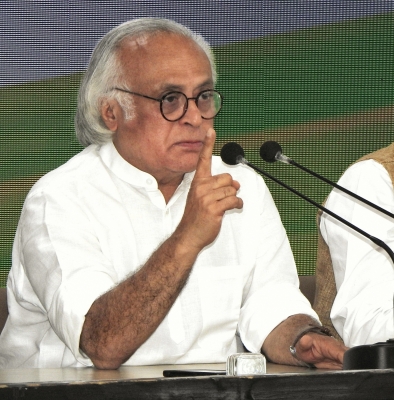New Delhi: The Congress Sunday alleged that the government has mismanaged the economy across all sectors and since it is “too inept” in fixing issues such as unemployment and price rise, it is distorting the data instead.
Congress general secretary Jairam Ramesh said now that the special session of Parliament is over, it is clear that the Modi government was trying to “distract and divert” the nation from some critical issues – “the Adani scam, the caste census and especially the rising unemployment, growing inequality and the economic distress”.
In a statement, he said no matter how much the Modi government hides the data, the reality is that the vast majority of people are suffering.
He claimed that some of the facts reported last week are being “brushed under the carpet”.
He said RBI’s latest bulletin of September 2023 shows the “complete failure” of the Modi government to execute a recovery from the COVID-19 pandemic.
“Forty-three per cent of people were in the labour force in February 2020. Over 3.5 years later, the participation rate remains around 40 per cent. As a matter of grave concern, a report from Azim Premji University shows that over 42 per cent of graduates under the age of 25 were unemployed in 2021-22,” Ramesh said.
In 2022, women were still making only 85 per cent of their earnings before the pandemic, he claimed.
“Remember that India was already facing the highest unemployment rate in 45 years before the onset of the pandemic — a statistic that the Modi government tried hard to hide from the public domain,” he alleged.
The Congress leader highlighted that the prices of essential commodities have been rising sharply, impacting the household budget of ordinary families.
“After the uncontrolled spike in tomato prices, now tur dal prices are up 45 per cent from January 2023, and overall pulses inflation has touched 13.4 per cent. Prices of atta are up 20 per cent since August, besan is up 21 per cent, gur is up 11.5 per cent, sugar is up 5 per cent,” Ramesh said.
Uncontrolled price rises across the essential household sector shows the inability of the Modi government to manage the economy, he added.
Ramesh also alleged that the crony capitalism of the Modi government has concentrated all economic benefits to a select few firms, making it next to impossible for MSMEs to compete.
“A report by Marcellus found that 80 per cent of all profits went to just 20 companies in 2022. In contrast, the market share of small business was at its lowest level in India’s history; small business sales were around 7 per cent of the total before 2014 but fell to under 4 per cent in Q1 2023. Seventy-five per cent of small businesses are losing money, according to a 2023 survey of 100,000 small business owners by Consortium of Indian Associations,” he said in his statement.
Noting that credit to the private sector is the engine of growth, Ramesh said a decade of stagnant credit is a symptom of a mismanaged economy.
According to World Bank data shown in last week’s RBI bulletin, from 2004 to 2014, domestic credit to the private sector grew consistently and rapidly, he said.
“Credit grew from 36.2 per cent of GDP in 2004 to 51.9 per cent of GDP in 2014. However, since 2014, credit growth has stagnated. In 2021, domestic credit was at just 50.4 per cent — lower than it was in 2014!” Ramesh said.
It should be a matter of grave concern to the government that household financial liabilities have been growing rapidly, the Congress leader asserted.
The Finance Ministry wants us to believe that people are buying homes and vehicles, but RBI data shows that there is a major spike in gold loans by 23 per cent and personal loans by 29 per cent, over the past year – clear signs of distress, as people go into debt to meet basic expenses, Ramesh said.
“Further, RBI data shows household savings growth has come down sharply, from 7.2 per cent of GDP in FY22 to just 5.1% in FY23. This is a 47-year low in savings growth rate, and reflective of the overall slowdown in the Indian economy under the Modi Government,” he said.
Ramesh said that for the first time in a decade, FDI inflows have declined in India.
The RBI bulletin showed that FDI decreased 16 per cent in FY23, he pointed out.
Further, as a percentage of GDP, after more than doubling from 0.8 per cent in 2004 to 1.7 per cent in 2014, FDI has been stagnant — inflows were just 1.5 per cent of GDP in 2022. Foreign investors are increasingly unwilling to put their money in India due to the Modi Government’s crony capitalism, failed economic policies, and stoking of communal tensions,” he alleged.
“From increasing unemployment, rising prices of household essentials, shrinking MSME sales, slow domestic credit growth, increased household financial liabilities and decreased savings, and declining FDI, the Modi government has mismanaged the economy across all sectors,” Ramesh said.
Ordinary families and small businesses are under intense pressure, but the government is “too inept to fix it and so is busy distorting the data instead”, he claimed.
The Congress has been attacking the government over its handling of the economy and raising concerns over “increasing unemployment and price rise”.
PTI
